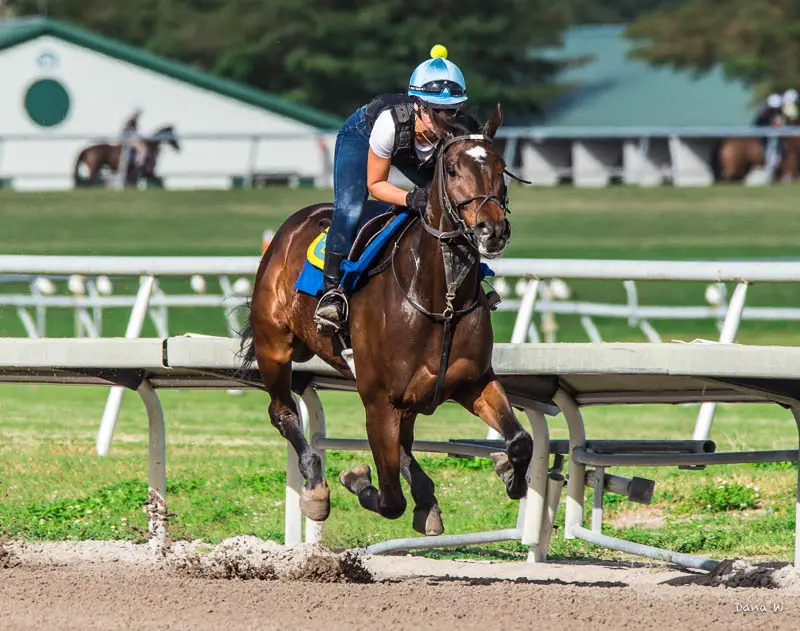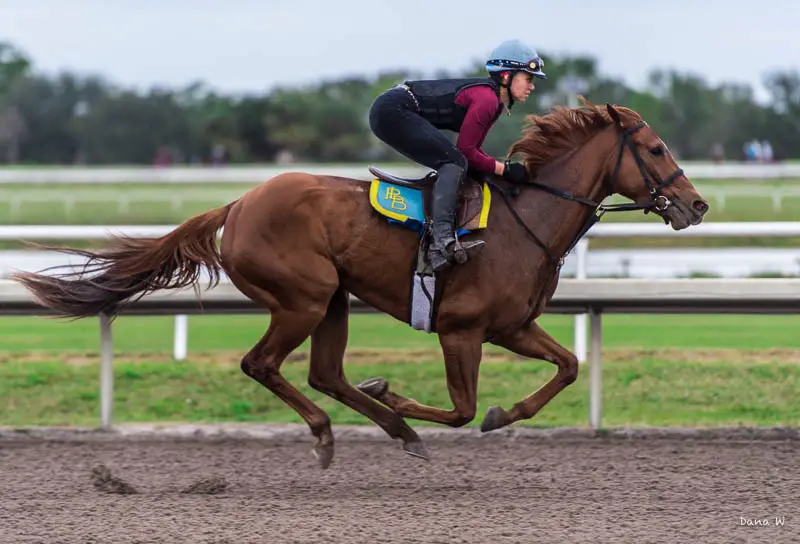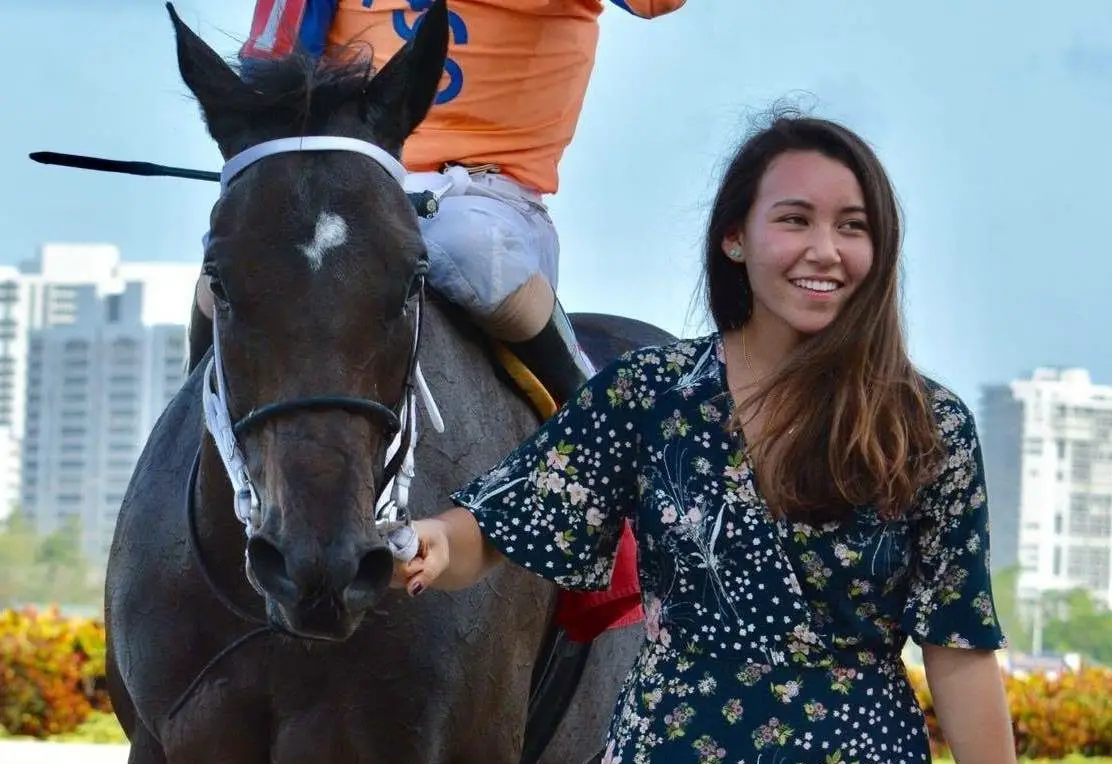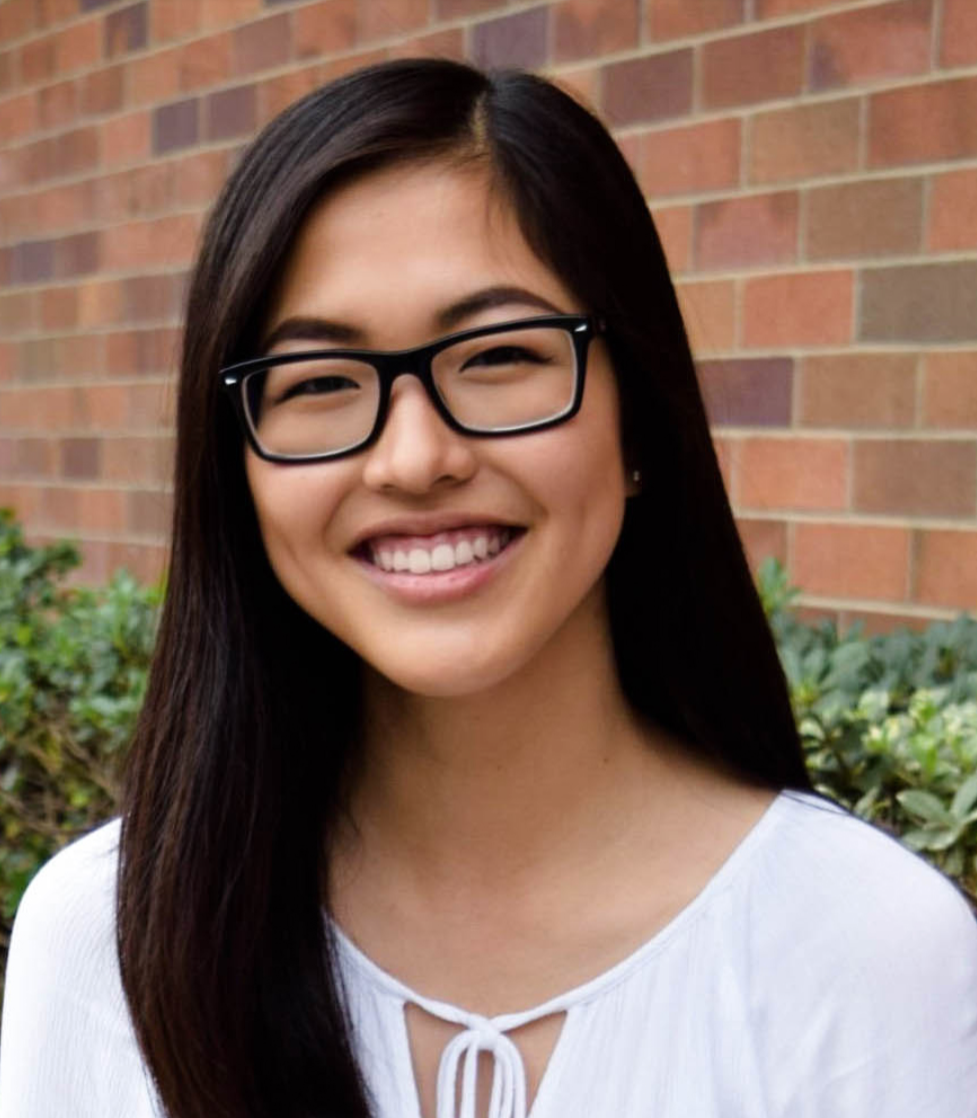While most students are catching much needed shut-eye at 4:30 in the morning, Biancone’s day is just beginning as she wakes up to train horses.
Juggling her horse training job and a full-time academic workload, Andie Biancone’s life revolves around clocking in and out of the barn. With hopes to transfer to the University of Florida and major in animal sciences, integrating her love for horses with a career in veterinary medicine is on the horizon.
Bonnie Wong: Can you explain to me what you do?
Andie Biancone: My dad is a racehorse trainer, which basically means people who own horses pay him to manage them. You can think of the horses as investments. He trains them, picks the races and finds horses for them, kind of like the coach of a team.
I’ve always grown up around horse racing and been around horses. I started officially working for him about a year and a half ago when I moved to Florida. I’m an assistant trainer and exercise rider.
BW: What does a typical day look like for you?
AB: I get to the barn between 5 and 5:30 a.m. and then I get on my first horse by 5:45 a.m. The horses do different things every day. They’re like athletes.
Some days they have light workouts and some days they have harder workouts. Exercise riders get the horses out and ride them. I normally get on three to six horses. We usually finish around 10 a.m. to 11 a.m.
BW: Have you always grown up within the industry? When did you get started?
AB: Yes. I’ve always been a little bit involved. When I was in middle and high school, I’d always go to the barn on the weekends. I grew up riding and working for jumper people, which is different from horse racing. You can’t [immediately] ride racehorses. You have to have some sort of background before you start to do that.
I started taking riding lessons when I was seven. When I was 10 my parents stopped paying for riding lessons because they were pretty expensive, so I had to start working them off. I’d go to the barn and help the jumper people on the weekends.
I’d clean stalls and in return I’d get to have a lesson. I did that until I was about 18 years old, except my junior year of high school when I took a year off [from riding]. Besides that, I’ve always ridden horses.
BW: Do you compete?
AB: I used to compete. Not frequently because I mentioned earlier that it’s super expensive to ride horses. I did get to compete quite a bit in the hunters and jumpers (two types of the equestrian performance sport). I did the most competing between the ages of 10 and 16.

BW: How much time do you dedicate to the horses?
AB: Throughout high school, I’d go after track practice and ride about three times a week. Now, it’s safe to say it consumes my whole life. There are no days off and no vacations. You’re there Christmas, New Year’s and every day.
During the weekdays I have to leave at 10 a.m. because I have to go to school since my first class is at 11 a.m. On the weekends I usually stay until 12 or 12:30 p.m. If we have horses that are racing I drive down to Gulf Stream, Florida, and prepare them for the race.
BW: How do you balance academics with horse racing?
AW: It’s hard. I honestly struggled a lot, especially when I started galloping more horses. I just started galloping racehorses less than a year ago, so when I started getting better and my dad put me on more horses, it became more time consuming. I normally go straight to school from the barn. I go to my classes; usually Mondays are harder because I have my chemistry lab.
What is really important for me is finding time to trap myself in the library with a friend and hash out work for an hour or two. Then I go home and not look at any homework for the rest of the evening. I feel like it’s really important to carve out a specific amount of time that you can focus.
Before I worked with my dad, I would open my book and do some problems and then take a break, get a snack and then go back as opposed to “Okay, I know I can focus this hard on this for an hour.”
BW: How has being around horses your whole life impacted you?
AB: Oh, wow. I can’t even describe how much horses have shaped me as a person and how much they’ve taught me and continue to teach me. They’re seriously super cool animals, and they all have different personalities. There are no two horses who I can think of who are similar out of all the horses I’ve ridden. They all feel different to ride, and they all have different quirks.
You have to figure them out. I think the most important thing they have taught me is work ethic. The hardest horses to ride often become your favorite because once you conquer them, you feel good about it. Sort of like studying. You obviously feel best about tests you put the most effort in as opposed to just going in and winging it.

They’ve also taught me a lot about not giving up and just pushing through even if you doubt yourself or are scared. There have been so many times throughout my life when I’ve said, “I hate this, and I want to quit.” Even now I get on horses and they end up being totally uncool to you or don’t want to cooperate.
They’re just like people, and they have bad days. On those days you ask yourself “Why am I here? I have so much to do.” You just keep going and keep doing it. Eventually you feel better. It just works out better in the end.
BW: Where do you see yourself in the future with horse racing?
AB: Hopefully once I transfer, I’d like to continue working with racehorses. The University of Florida is my top choice, and it’s very close to a part of Florida that does a lot of horse breeding. I’d like to work with two year olds as I finish my undergrad. You train them to be ridden and [teach them] what it’s like to be a racehorse. Once I’m finished with my undergrad, I’d like to apply to veterinary school.

















